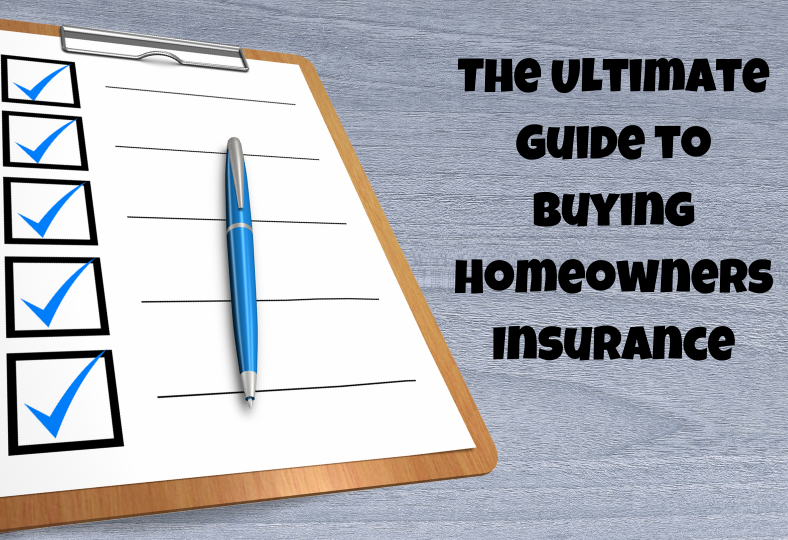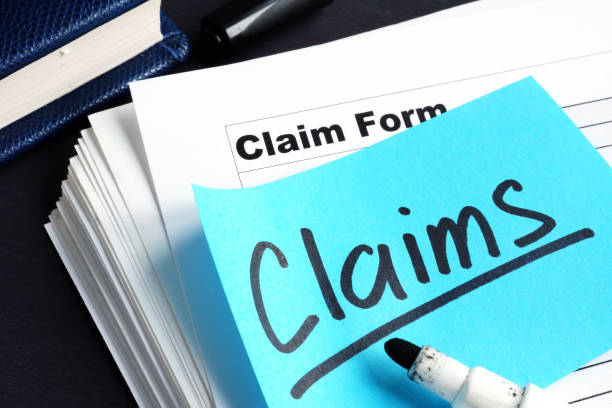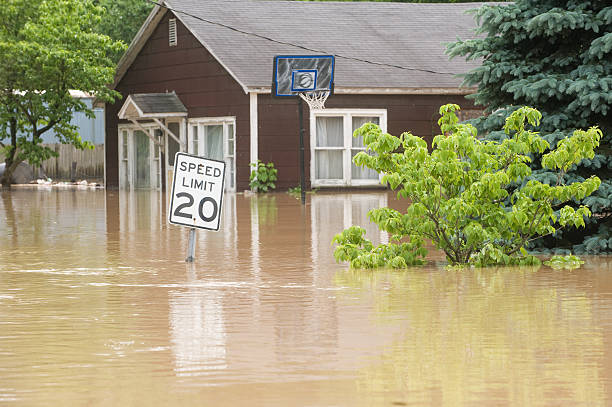
Unless their home is damaged or someone is injured on the property, homeowners insurance isn’t something most people think about. Good homeowners insurance can make all the difference between financial security or disaster.
You don’t have to stay with the same carrier; it is actually recommended that you shop around for lower rates. There are countless websites that compare the rates of numerous homeowners insurance companies, and you may find a suitable carrier among them that charges you less. Premiums for homeowners insurance are constantly rising which may become a problem in the future as these premiums are consistently rising.
Patterns that Affect Homeowners Insurance Costs
Pricing for the coverage of your residence–a large portion of your homeowners insurance–is determined by the cost of repairing or rebuilding your home. Contrary to popular belief, home insurance premiums don’t correlate with home prices. Therefore, real estate inflation experienced by many areas in the past year will not affect home insurance costs. These other trends may also have an impact:
- Epidemic-related shortages: Building materials, including roofing materials, are in short supply while the demand by contractors and DIYers for them has risen. This has led to price inflation. Lumber costs, for instance, tripled between April 2020 and June 2021. Computer chips, which are the brains of many technical parts of the home, have also been affected. These forces have an impact on the cost of rebuilding or repairing homes and, consequently, insurance.
- Natural disasters: Large-scale natural disasters have had a significant impact on home building prices in recent years. Significant floods in the Southeast as well as wildfires in Western states have actually better ramped up demand for structure materials, increasing prices to reconstruct.
- Rise in insurance claims: In states that have experienced considerable disasters over a period of years, insurance companies have actually been permitted by state regulatory authorities to raise rates to compensate for those cases as well as for the greater risk. Even homeowners who have not filed any claims can be affected by the increases. In some cases, insurers may leave an area due to rising claims or drop policyholders which forces homeowners to search for new coverage.
In such an atmosphere, you might be questioning exactly how to cover your residence effectively, reduce your premiums, and also handle your present insurer– or discover a brand-new one. These suggestions might help.

Research Reputable Insurance Companies
How well an insurer handles claims is the best way to judge an insurance company. Some state insurance departments publish rate comparisons which can usually be found on the company’s website. Some insurance companies may also take surveys on customer satisfaction.
Customer satisfaction was best predicted by companies’ damage estimates. Lower-rated insurance companies often tended to have a greater percentage of consumers who disagreed with their damage price quotes and also felt that their last settlement was not large enough.
A large number of homeowners indicate that they have changed carriers within the past three years. Over half of those who switched to another carrier said that they did so because they were offered a lower price. Not to be confused, however, is the fact that select top-rated companies use their own agents and their homeowners insurance is not included in online shopping. To get quotes, you will need to contact each company separately.

Find the Right Coverage For You
Homeowners coverage is not subject to state mandates, unlike auto insurance. If you have to rebuild your home, being underinsured could result in you being responsible for large sums.
On the other hand, you don’t want to buy too much coverage. For example, it would be an error to assume that you require coverage equal to the market value of your home. This value also includes the land on which your home is built, which will not change even after a disaster. This is why your home’s value will usually be greater than its cost to completely rebuild. It is recommended to have enough insurance to cover the cost of the labor and materials required to rebuild your home. This is called the replacement value, or replacement cost. This amount can be calculated by your insurance agent.
Standard homeowners insurance policies provide “loss-of-use” coverage. This policy pays a fixed amount per day to allow you to live in another place while your home is being built. Rebuilding can take longer if certain building components are difficult to find which could mean that you may spend more time outside of your home than usual. It is suggested that you discuss this coverage with your agent in order to ensure that you have sufficient funds going forward.
Protect Your Assets
Standard policies will be more expensive if you add on options or have separate coverages. This could save you money over the long-term. Remember that not all carriers will offer these extras in their basic overage option and some may charge extra premiums. These are some add-ons you should consider:
- Additional replacement cost: This will pay 20-25 percent over the limit of coverage in case building costs rise after a major catastrophe. The state and the insurance company will determine which benefits are available, so make sure you read the fine print before signing up. Keep in mind also that this only covers the cost of typical building supplies. Other custom features, such as stained-glass windows, will need to be covered by a different policy. Many insurers who sell policies for high-end houses offer guaranteed replacement cost coverage which covers the entire cost of repairing a home destroyed by a natural disaster.
- Inflation protection: Check that your policy has an “inflation guard” feature that automatically increases your coverage to cover annual homebuilding cost increases.
- Specific weather damage: Many homeowners who have filed a damage claim have indicated that hail was the most common cause of damage. You may need to either pay an additional deductible for hail damage, or purchase stand-alone coverage depending on where you live.
- Replacement costs for home contents: Standard policies may only cover the “actual cash value” of home contents that have been stolen or damaged. You can opt for replacement cost coverage to avoid paying the difference in replacing your possessions. You can document the contents of your house by taking a video inventory and storing it somewhere safe.
- Other valuables: Homeowners’ policies typically set dollar limits that put a cap on what an insurer will pay to replace valuables like firearms and jewelry. To replace jewelry stolen from you, you could get up to $2,500. These lower limits are often only applicable to theft. There are different policies you can purchase to cover more expensive items.
- Sewage backup: This insurance could protect you if there is a sewage backup into your home. It costs around $40 to $100 annually and policy limits typically range between $5,000 and $25,000. Be aware that this type of coverage is not offered by all insurance companies. Homeowners policies typically do not cover a septic tank on your property. However, it will cover any damage to your home from a serious septic problem. On the other hand, the septic tank is not part of the policy so it will be the homeowners’ responsibility to get it repaired or replaced.
- Law and endorsement: This add-on offers additional coverage to cover the cost of rebuilding in accordance with current local building codes which is also true for older homes that need to be repaired or replaced.

Increase Your Liability Protection
Homeowners policies usually include a liability insurance limit of $100,000 to cover damages and costs resulting from lawsuits. Depending on where you live you may be sued for all of your assets, including investments and real estate. Boost your limit if the worth of your assets goes beyond $100,000.
It is best to purchase coverage that is at least equal in value to your assets. This extra protection can be provided by umbrella or excess liability coverage. In the event of a lawsuit for property damage or accidental injury, it will increase your liability protection beyond what is provided by your home policy. You may also be protected from lawsuits for libel and slander, but you may need to increase the liability coverage limits of your homeowners insurance before you can get it. An umbrella liability policy for $1 million typically costs only a few hundred dollars every year. Getting more umbrella coverage can help you save money.

Think About Flood Insurance Even if Your Area is Low-Risk
Flooding will not be covered by homeowner’s insurance if it is caused by a pipe, or another system in your home. Flood insurance must provide protection against flooding or mud flows from the outside only. Even if your property is not at risk, this coverage can prove to be very cost-effective. It has been proven that a portion of flood losses paid by insurance companies have taken place in low-risk flood areas.
You can purchase flood insurance coverage through any insurance agency that sells homeowners or car insurance. You can purchase flood insurance through the National Flood Insurance Program or through a private insurance company of your choosing.

Discover Ways to Make Your Premium Cheaper
- Combine coverage: Bundling homeowners and auto insurance from one company can save you up to 30%. Adding your boat or motorcycle could help you save even more. This can even make the bill paying process easier!
- Increase your deductible: Higher deductibles mean reduced premiums. Increasing your deductible will actually save you 25% of your money in the long run.
- Search for home improvements: Replacing old pipes, adding security systems, and including gas-leak detection sensors in the home can all result in insurance savings of up to 2 to 6 percent! In some states, replacing a roof with one that is impact-resistant can result in even higher savings of up to 35%. You can even get a discount on your premium by removing the dry brush surrounding the homes located in fire-prone areas!! It is also recommended that you find ways to build your home more energy efficient as this may give you a discount.

Become a Professional at Submitting Claims
Multiple claims within a short time frame will likely result in a rate increase, or worse, your insurer may not renew your policy. There is not a significant number of homeowners who have seen an increase in their insurance rates after submitting a claim so there isn’t much to lose by filing one claim.
If you don’t file a lot of claims, your insurer won’t raise your rate or decline your renewal request. However, you should not make claims for less than the deductible. This could result in you losing any discounts that you are entitled to for infrequently filing claims. Before you report, talk with your insurance agent about the pros and cons of filing a claim.
Getting Dropped By an Insurer
There are many reasons why insurance companies drop customers, including:
- Cancellation: If you are a new policyholder, the insurer can cancel your policy at any time within the first 60 days. After 60 days, an insurer can cancel your policy if you fail to pay your premiums or if you are found to be a greater risk to the insurer. This can happen if the insurance company finds out you’ve done something that is not covered by your policy. The notice period for cancellation varies from one state to the next.
- Nonrenewal: Your insurer may decide not to renew the policy after it has expired. This can be due to you filing too many claims even if they were small. Your insurer can also decline to renew your policy if the company determines that it is not profiting from insuring homeowners in your area. Your insurer will usually give you notice within 30 days if your policy isn’t renewed.
Talk to an agent if you have been dropped and cannot find coverage through a private insurance company. You can also contact your state insurance department or go online to get a list of local insurers.
